We’ve wrapped up our live coverage. Read more about the strike here.
Union workers strike against Big Three automakers
By Robert Ilich, CNN
Negotiations between UAW, automakers continued Sunday
From CNN's Vanessa Yurkevich reporting from Michigan
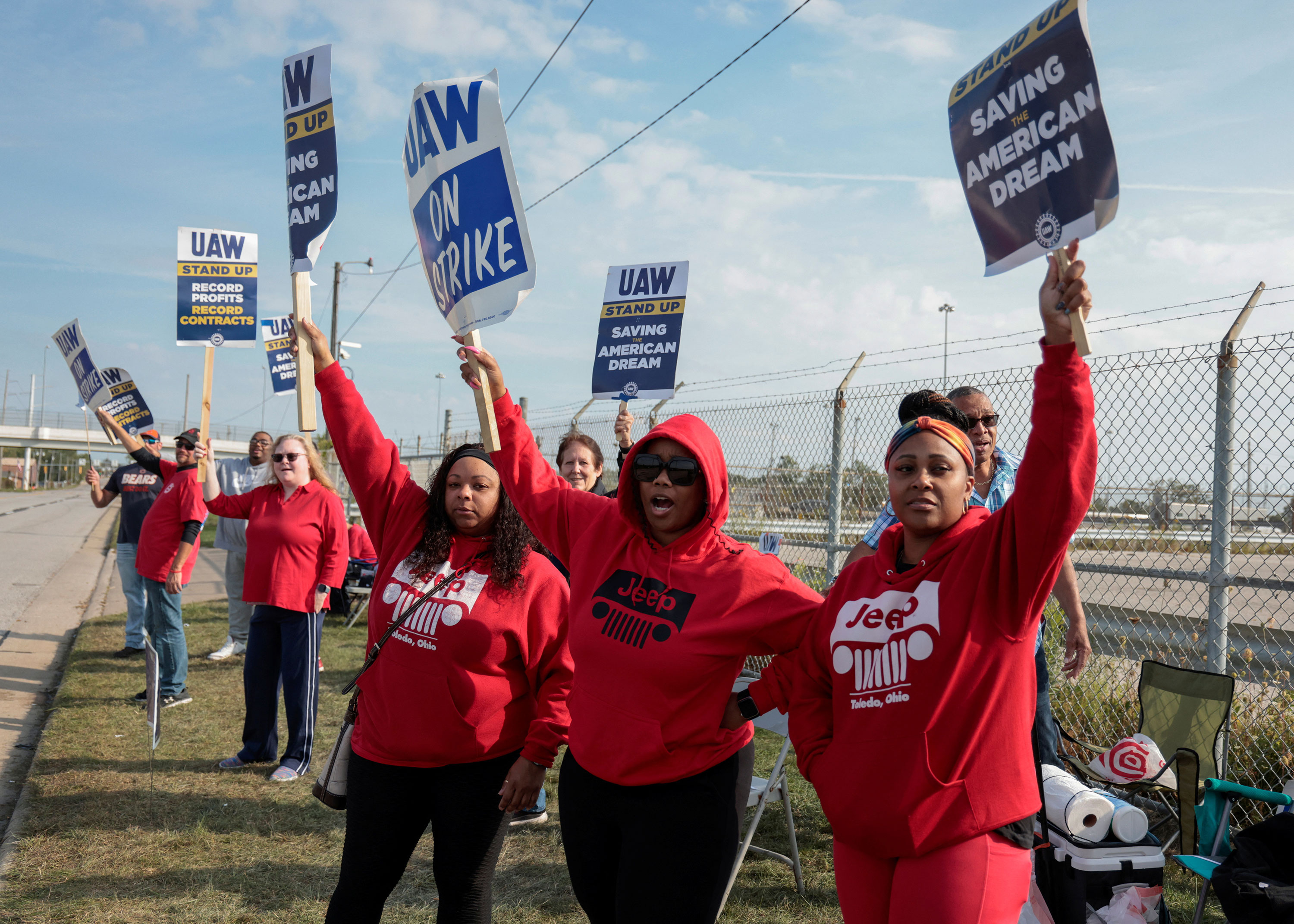
Negotiations between the UAW and the Big Three automakers have been ongoing this weekend and continued into Sunday, according to a source with knowledge of the negotiations.
The source provided CNN with additional information about the talks:
- General Motors met with the union at the main negotiating table Sunday, while Ford met at the "big table" with the UAW on Saturday and Stellantis will meet Monday.
- The last offers from the three automakers came before the Thursday night deadline. The UAW countered the proposals before the deadline, as well.
- “Comprehensive, full contract offers were given,” the source said.
- The union is awaiting new offers from the automakers.
Hakeem Jeffries arrives in Michigan, calls UAW strike a "righteous fight"
From CNN's Vanessa Yurkevich reporting from Michigan
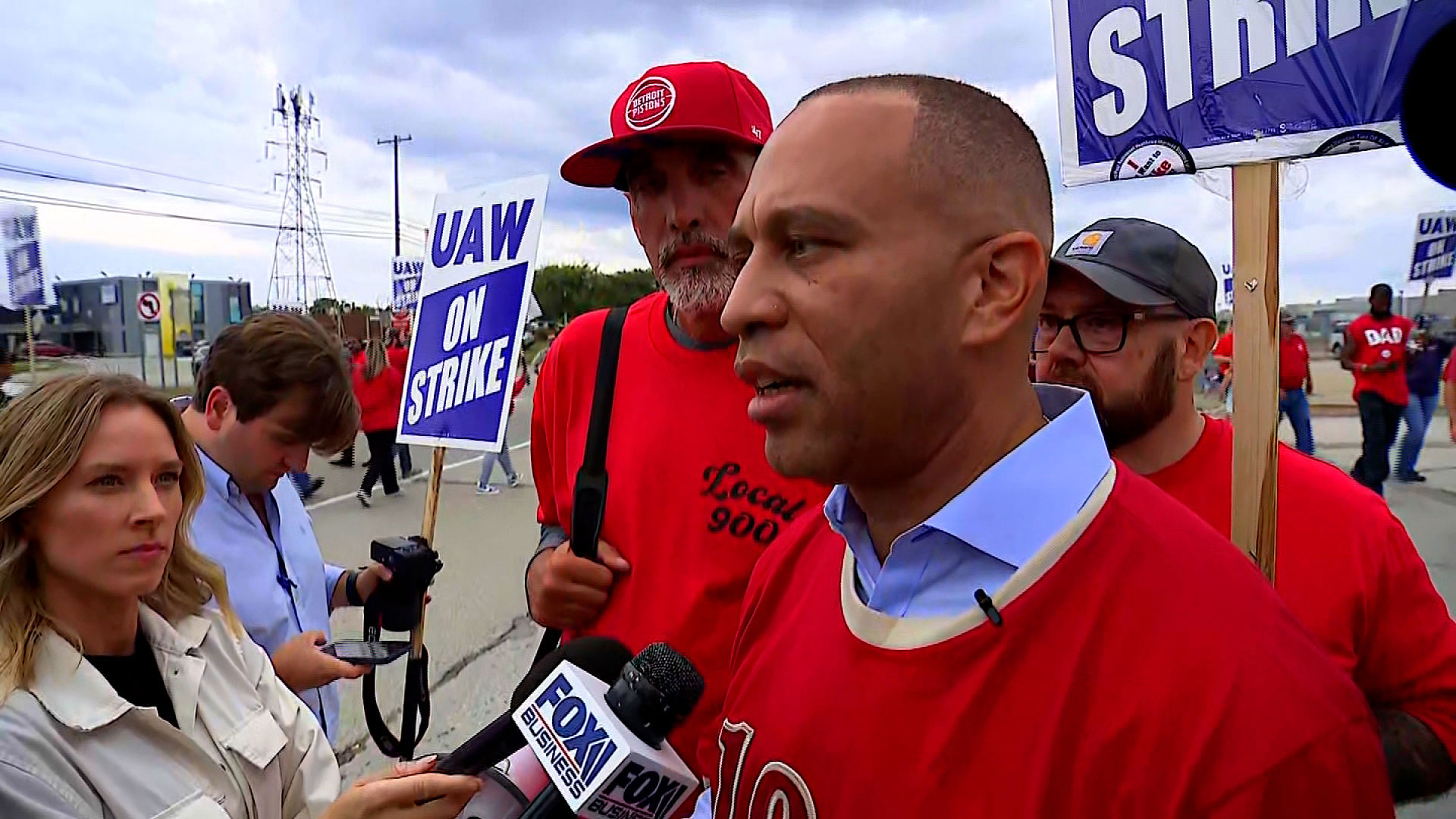
House minority leader Hakeem Jeffries stood with striking UAW workers on Sunday afternoon in Wayne, Michigan, where Ford has two assembly plants.
Jeffries described the strike as a "righteous" and "necessary" fight.
The New York Democrat said he was there to "express strong solidarity with every single UAW member who is out on strike and the entirety of the union, because what they are fighting for is fundamentally the American dream."
Jeffries echoed comments from President Joe Biden that "there have been record profits that should result in a record contract." Jeffries added "nothing less than that is acceptable."
A White House official told CNN on Sunday "both senior aide Gene Sperling and Acting Labor Secretary Julie Su are engaging with the parties, as they have for weeks, with the intention of continuing conversations in person early in the week." The historic strike is in its third day.
Jeffries said he was there "as the highest ranking Democrat in the House to make clear that we stand with the UAW."
"We will be with the UAW until they win the fight," he said.
White House addresses role in negotiations
From CNN’s Vanessa Yurkevich reporting from Michigan
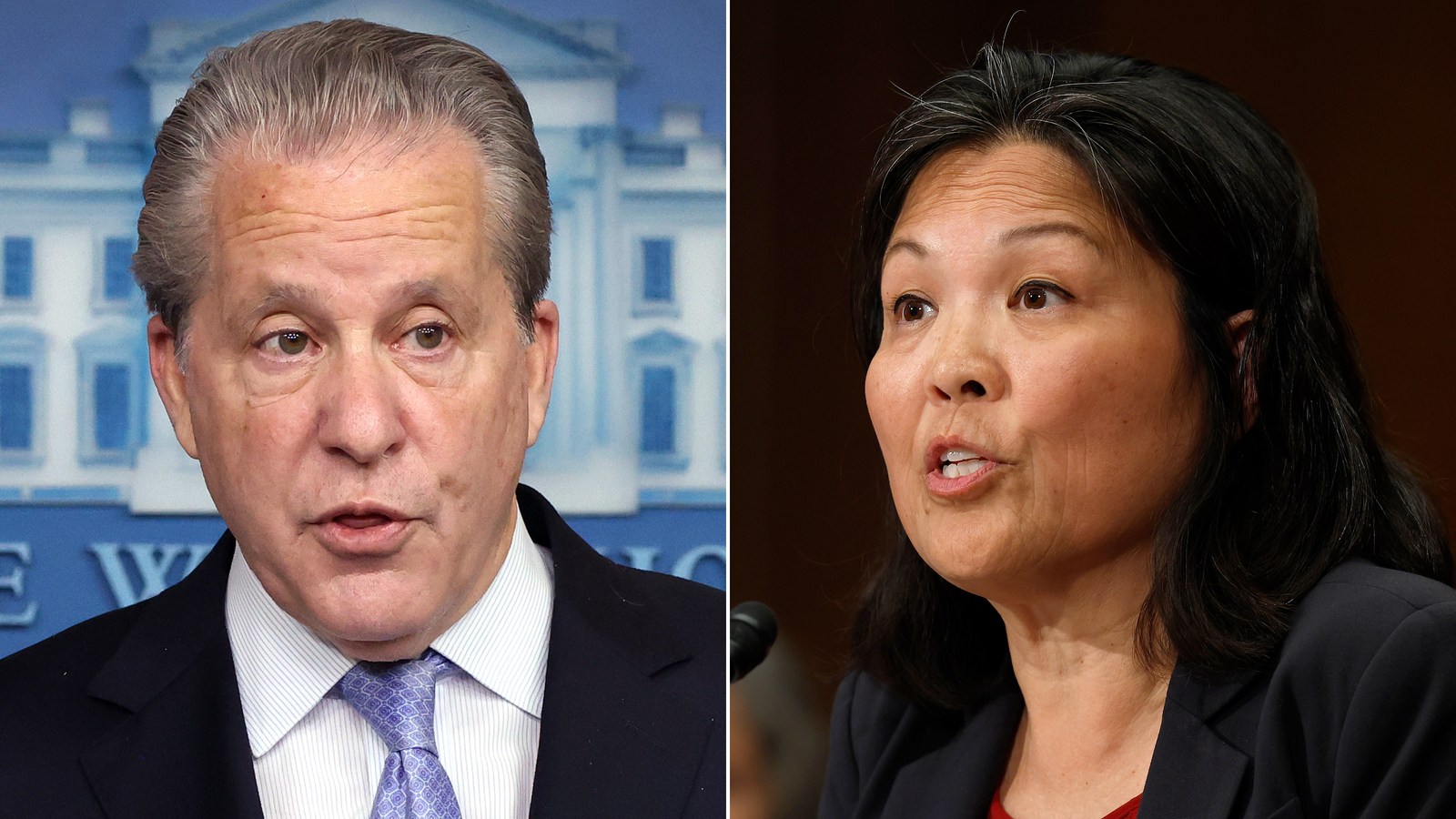
A Biden administration official told CNN that senior aide Gene Sperling and Acting Labor Secretary Julie Su continue to engage with the parties and plan to continue conversations in person early this week.
"As the President has said consistently, he believes in collective bargaining, including the right to strike, and that process only works with the parties negotiating a contract themselves. Both Sperling and Acting Secretary Su are engaging with the parties, as they have for weeks, with the intention of continuing conversations in person early in the week," the official said.
"As the White House Press Secretary previously said, the goal of Su and Sperling is not to intervene or to serve as mediator, but to help support the negotiations in any way the parties feel is constructive. The President continues to believe the new contract should ensure that auto jobs going forward are good middle class jobs, and that the UAW stays central to America’s auto leadership for the years and decades ahead."
UAW resumes negotiations with two of the Big Three automakers
From CNN’s Vanessa Yurkevich reporting from Michigan
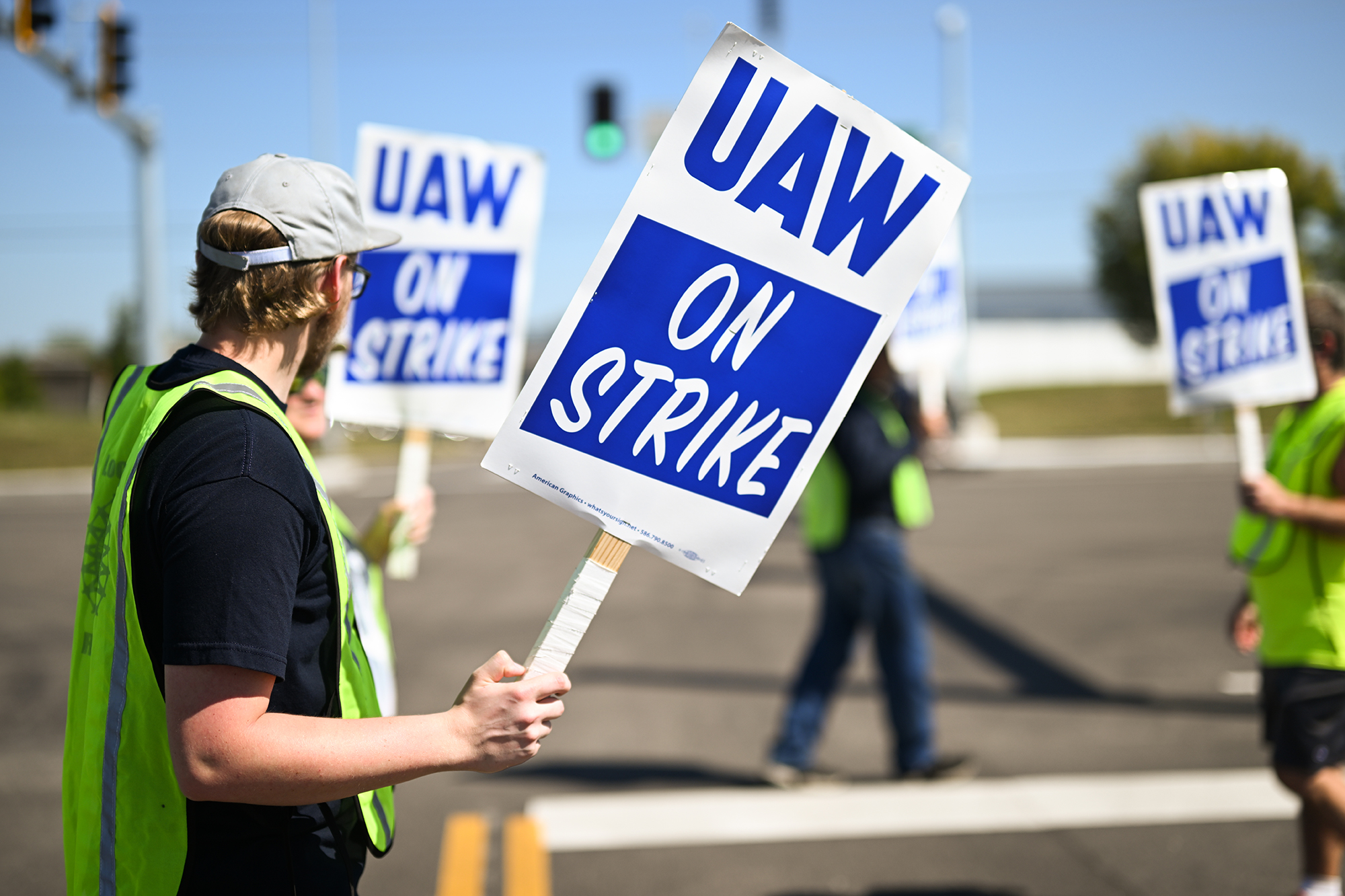
United Auto Workers negotiations with two of the Big Three automakers will continue Sunday after a targeted strike by the UAW against all three companies.
Sunday’s negotiations are with Ford and meetings are planned with General Motors, according to two sources with knowledge of the negotiations.
The union said they had “reasonably productive conversations with Ford” on Saturday. This is the first positive comment we’ve heard from the union about negotiations with the Big Three.
Stellantis and the union will not meet today but agreed to resume bargaining Monday, according to a company spokesperson.
On Saturday, Stellantis and the union traded public barbs over the closing of the company’s assembly plant in Belvedere, Illinois.
Stellantis’ most recent public offer was a 21% four-year compounded wage increase. The union is asking for 40% in wage increases over four years.
When asked about Stellantis’ most recent offer on CBS’s “Face the Nation,” UAW President Shawn Fain said, “It’s definitely a no-go.”
Fain also indirectly referred to CNN’s interview Friday with General Motors CEO Mary Barra, who was asked why her workers shouldn’t receive the same percentage pay raise that she received.
Barra saw a 34% pay raise over the last four years as CEO. General Motors is offering 20% to workers.
Barra defended her earnings by saying that “92% of it is based on performance of the company.”
Fain called those comments “pathetic” and “insulting,” on both MSNBC and CBS.
“It’s a shame that (CEOs) make those millions off the backs of exploiting workers at poverty wages,” Fain told MSNBC on Sunday.
UAW president says "membership is fed up," more strikes are possible
From CNN's Eva Rothenberg
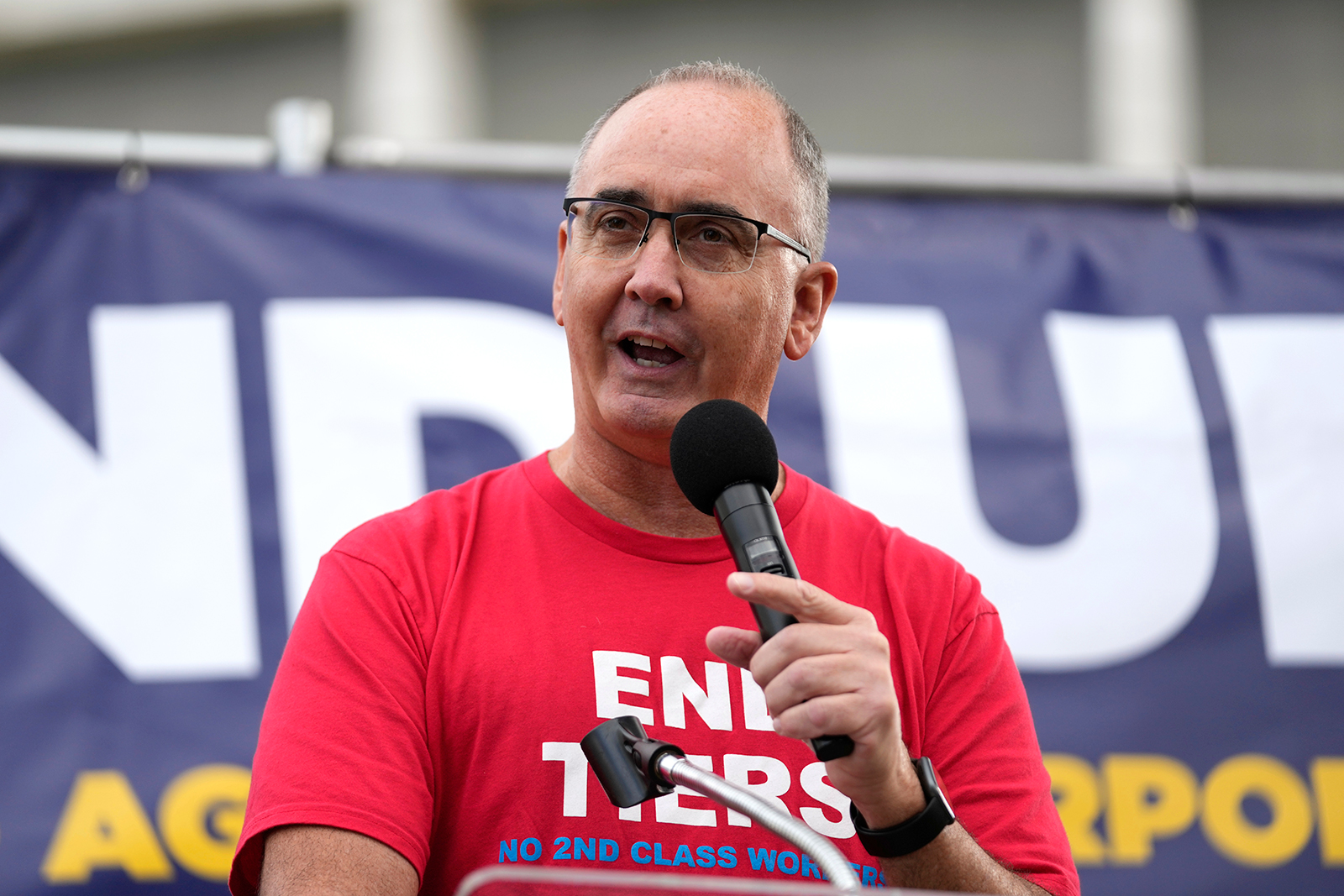
United Auto Workers could call for additional strikes this week, the union's president Shawn Fain said Sunday on CBS's "Face the Nation."
"We're prepared to do whatever we have to do," said Fain. "We're fed up with falling behind. There is no excuse. These companies have made a quarter of a trillion dollars in the last 10 years — $21 billion in the last six months alone — and our workers' wages and conditions have went backwards."
Fain spoke about the broader industry shift towards electric vehicles, which have been pushed by the Biden administration. Fain said the transition to less labor-intensive EV batteries is not a threat to the union's strength, rather the issue is that workers are being left behind in the course of this transition.
"Our tax dollars are financing a massive portion of this transition to EV," he said. "We believe in a green economy … but this transition has to be a 'just transition.' And a just transition means: if our tax dollars are going to finance this transition, then labor can't be left behind."
He also addressed the federal government's role in the strike, as well as his decision to not yet endorse President Joe Biden's reelection campaign.
"Our endorsements are going to be earned," he said.
"We expect action, not words … who the president is now, who the former president was, or the president before them, (that) isn't going to win this fight. This fight is all about one thing: it's about workers winning their fair share of economic justice instead of being left behind as they have been for the last decades."
Strikes are making a comeback in the US
From CNN's Nathaniel Meyersohn
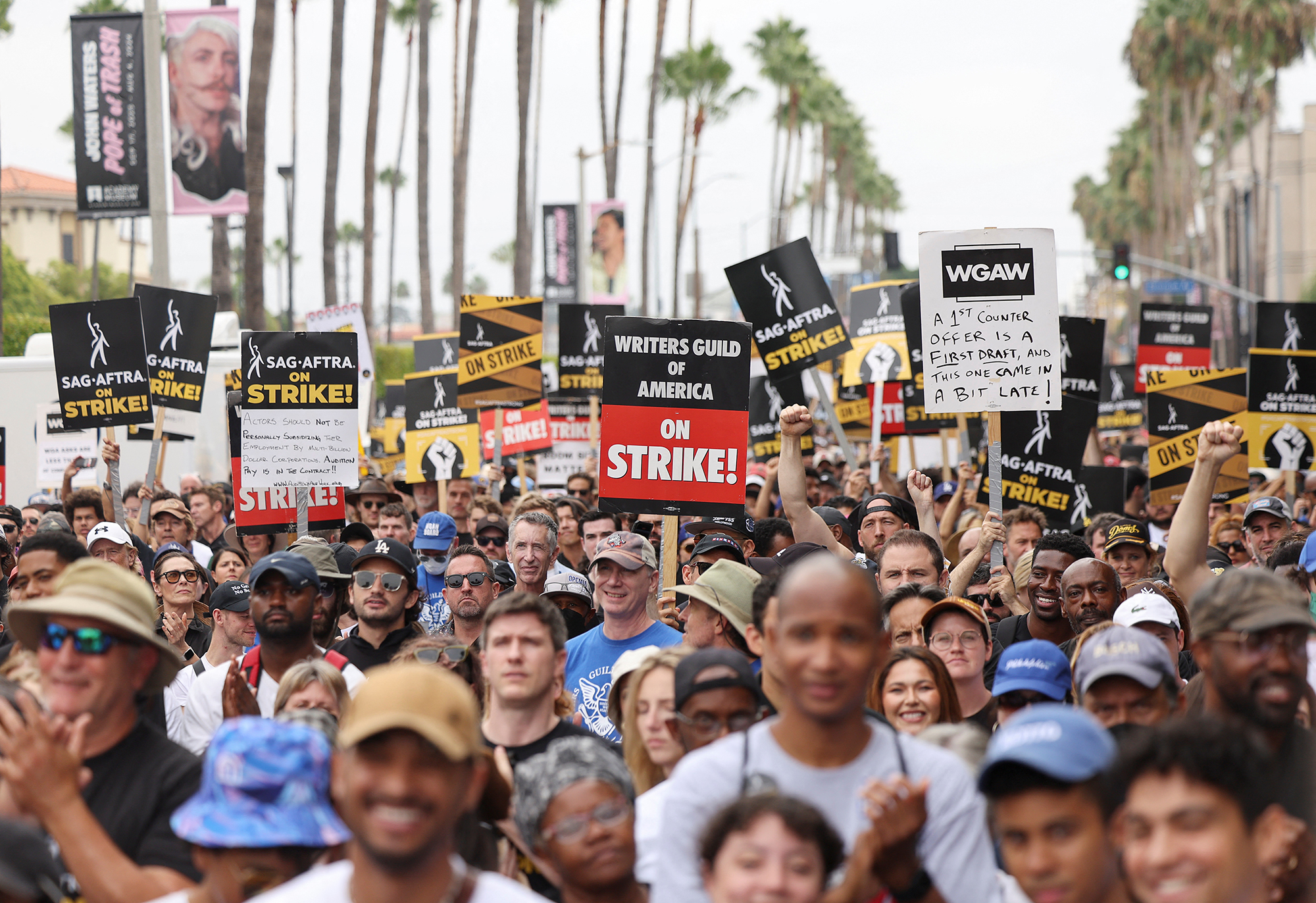
The United Auto Workers strike isn’t happening in a vacuum. It’s part of a growing movement of US workers walking off the job.
From Hollywood writers to nurses, factory workers, and Starbucks baristas, thousands of workers have gone on strike in recent months to demand higher pay and improved benefits and working conditions. The Teamsters union recently used the threat of a strike by 340,000 members at UPS to secure most of their demands, including pay raises and new air conditioned vans.
Labor has become more aggressive because of decades of stagnant wages for lower and middle-income workers, while the richest Americans expanded their wealth to unprecedented levels. Corporate profits have soared since the pandemic, and workers want a greater piece of the profits.
“There’s a generational change taking place in the labor movement and its thinking,” said Joseph McCartin, a labor historian at Georgetown University.
Between 1979 and 2022, the inflation-adjusted annual wages of the top 1% of workers rose by 145%, while the average annual wages of the bottom 90% rose by only 16% — about a tenth as fast, according to the Economic Policy Institute. Several factors contributed to these trends, including deregulation, the decline of unions, and little change in the federal minimum wage.
The auto workers, for example, are taking aim at CEO compensation at Ford, General Motors and Stellantis — which has grown by more than 40% over the last four years — to press their case for worker wage increases.
Workers also believe they have more bargaining power due to a tight labor market and the strongest public support for unions in decades.
“We’re living through a strong labor market and economy, and workers and unions feel more leverage when economic forces are blowing in the direction they have been,” McCartin said.
Here's what the autoworkers' strike could mean for the rest of the US economy
From CNN's Elisabeth Buchwald
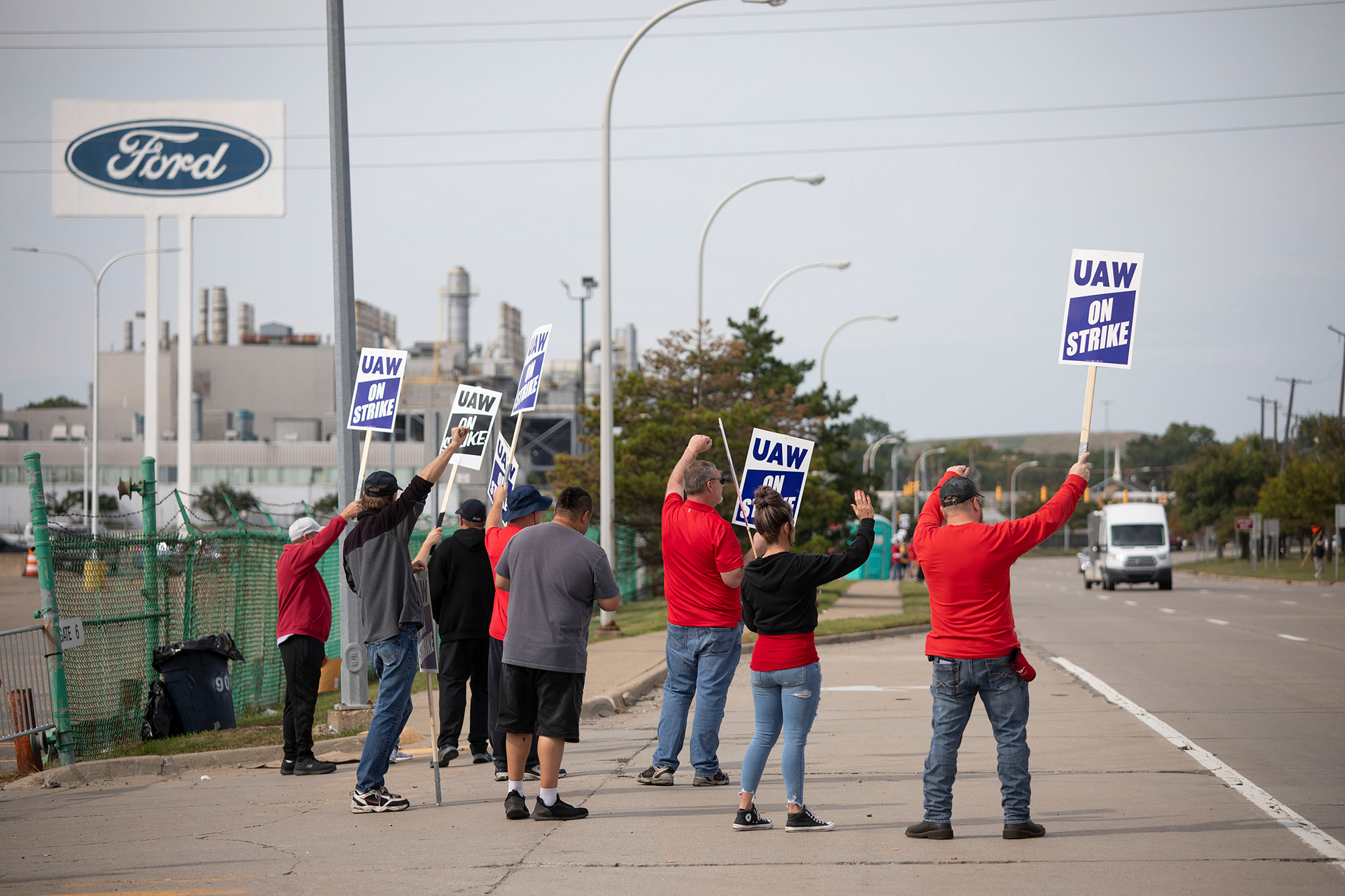
With the United Auto Workers’ historic strike officially underway, experts say the US economy is already getting bruised – but the strike’s impact isn’t likely to push the nation into a recession.
“That’s because the unionized part of the industry, while still large, is not as big a piece of the national economy as it once was,” Gabriel Ehrlich, an economic forecaster at the University of Michigan, told CNN.
But the ultimate impact of the strike depends on things like how long the strike lasts, if companies lay off workers at other plants, how many workers walk off their jobs and how long the unions and companies take to negotiate a deal.
UAW president Shawn Fain said “we’re not going to wreck the economy. The truth is we are going to wreck the billionaire economy.”
And while estimates of the economic impact of the strike don’t point at “wrecking the economy,” the damage could be significant.
For instance, if all UAW workers at Ford, General Motors and Stellantis strike for 10 days, it would cost the US economy $5 billion, according to Anderson Economic Group’s estimates.
Another estimate by Ehrlich assumes there would be a much smaller immediate spillover effect. He estimated $440 million worth of income would be lost nationally if all the UAW members strike for two weeks. If the strike lasts eight weeks, he estimates a $9.1 billion hit to incomes nationwide.
Here are some other key factors to consider:
- Businesses near strike sites will see revenue slow: Although striking UAW members will be receiving $500 a week in strike pay, it likely won’t be sufficient for them to keep up their normal spending. That means local businesses near strike sites will lose out on revenue.
- Suppliers that work with the Big Three could lay off workers: The Big Three automakers are going to be anxious to restart production as soon as the strike ends, said Ehrlich. That’s why he expects them to delay canceling orders with suppliers for necessary parts for as long as possible. But when the automakers ultimately do begin canceling orders, it could have a ripple effect throughout the parts supplier network.
- Tax revenue will decline: Fewer people working because of the strikes will mean the government can’t collect as much tax revenue. That matters because it means that fewer programs will receive the funds they need.


